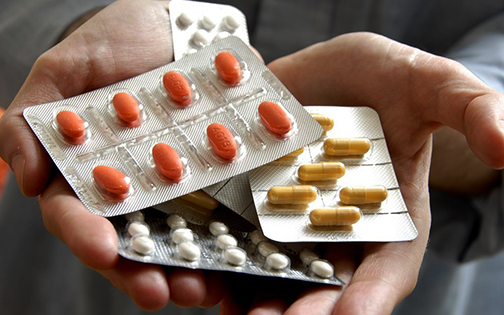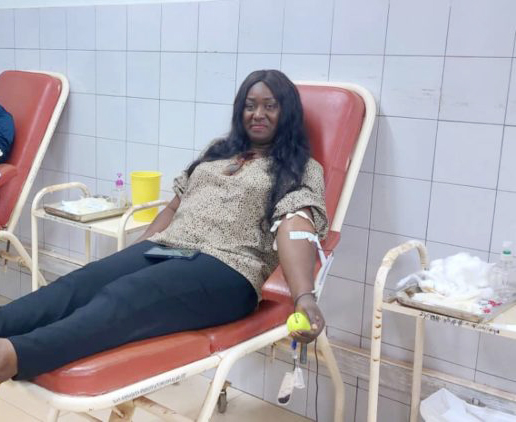Self-medication: danger to life
- Posted on 17/10/2023 13:52
- Film
- By abelozih@sante-education.tg

Extract from the article: L’automédication correspond à la prise d’un ou de plusieurs médicaments sur initiative personnelle, en l’absence de prescription médicale ou à une modification apportée sciemment au protocole d’une ordonnance. Au Togo, selon une étude réalisée en 200
Self-medication
is the practice of taking one or more medicines on one's own initiative, in the
absence of a medical prescription or a deliberate change to the protocol of a
prescription. In Togo, according to a survey carried out in 2003, 93% of
respondents admitted to having self-medicated in the three months preceding the
survey.
Self-medication
concerns all categories of people. It ranges from the poorly educated to those
with a higher level of education. It affects both men and women. « In
Togo, the majority of people who self-medicate are aged between 17 and 35. Unfortunately,
self-medication also affects children. Many mothers give medicines to their
children without a prescription », says Dr Jean-Claude Bakpatina,
General Practitioner at the Floréal clinic in Lomé.
Consequences
of self-medication
Self-medication
has a number of consequences for health, including: « drug toxicity or
ineffectiveness due to non-compliance with the dose and dosage, the possibility
of masking symptoms leading doctors to miss their diagnosis, the emergence of
resistance to antibiotics and antimalarial drugs, and the occurrence of drug
interactions and their consequences », stresses Dr Jean-Claude
Bakpatina, General Practitioner. Added to these health consequences is the
waste of resources invested without any convincing results.
Different
forms of self-medication
Apart
from self-medication, where the patient or a family member fetches the product
directly without a prescription, there is also pharmacy advice, which
authorises the pharmacist to recommend certain medicines, known as « advice
medicines ».This is why pharmacists dispense medicines such as paracetamol
and certain vitamins.
The
GP explains that self-medication can involve medicines sold in pharmacies or
street medicines. « Both forms are used by patients, but it is above
all the second form, where the patient goes out to the street to find the
products, that is the most dangerous.Patients put themselves in danger twice
over. They're putting themselves at risk by self-medicating, and they're
putting themselves at risk by taking medicines from the street, the quality of
which has not been checked », says Dr Bakpatina. says Dr Bakpatina.
There
is also evidence of overuse of certain self-medication drugs. These include
sleeping pills, painkillers including tramadol (used by motorbike taxi drivers)
and aphrodisiacs.These different drugs can lead to « addiction,
dependency and other effects, including heart attacks », insists the
GP.
Precautions
to take to avoid self-medication
To
avoid self-medication, always seek advice from an authorised prescriber, such
as a doctor, medical assistant, nurse or midwife. « When in doubt about
dosage, always ask for advice.Some patients swallow ova or gynaecological
tablets when they are intended to be inserted into the vagina.Others, for example,
swallow effervescent tablets without first dissolving them in half a glass of
water, or worse still, some hypertensive patients take effervescent medicines
with a high salt content when they shouldn't », advises Dr Jean-Claude
Bakpatina. For all these reasons, the role of the pharmacist is emphasised.
William O.




